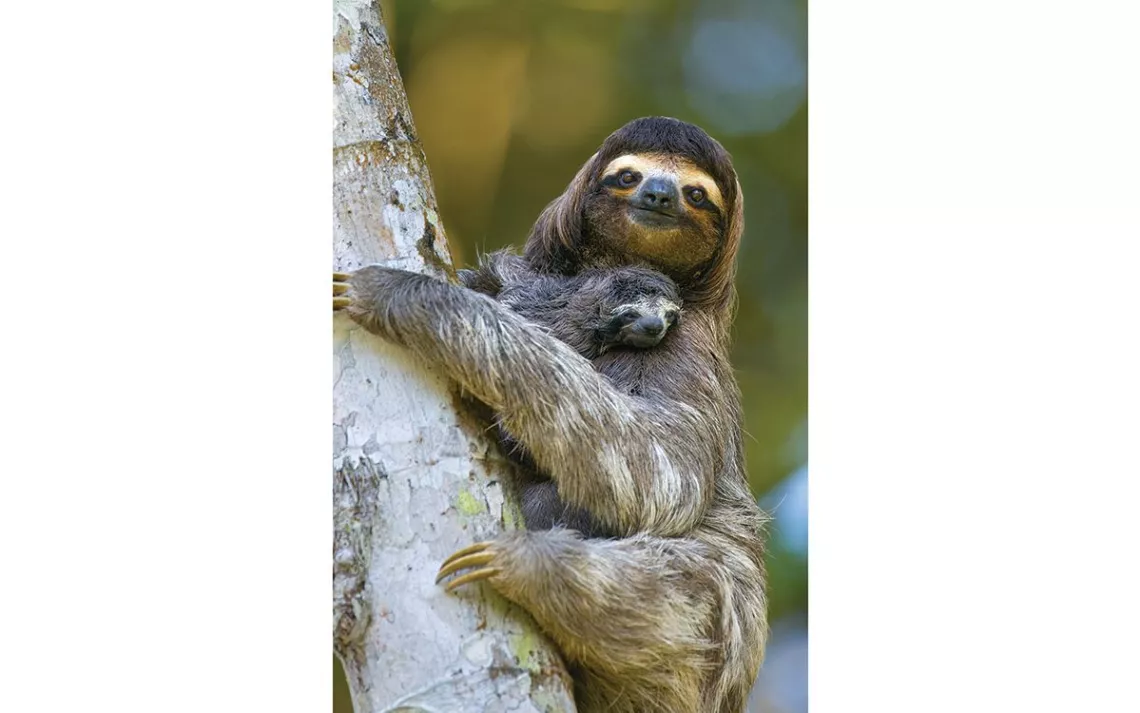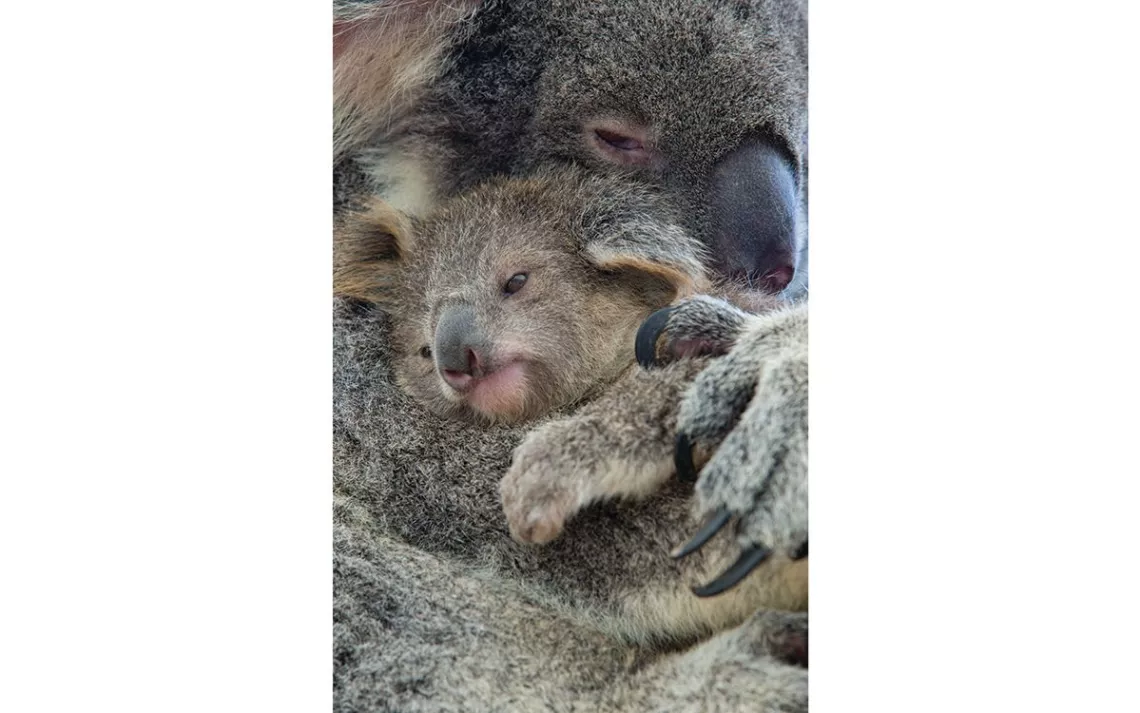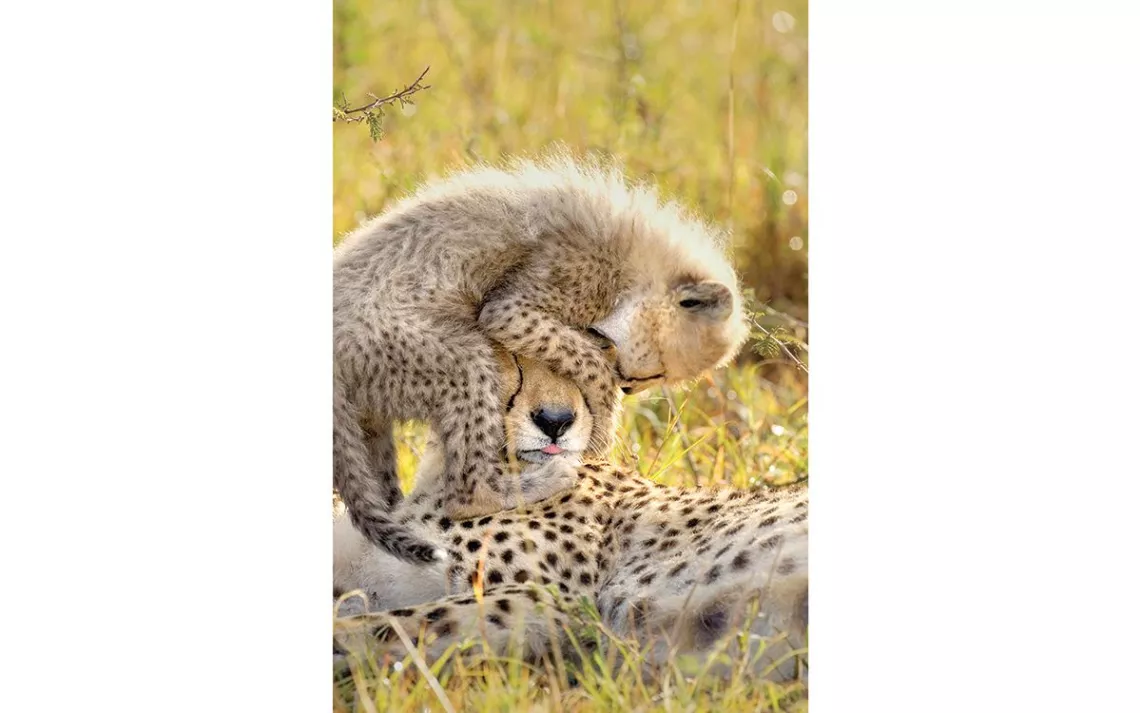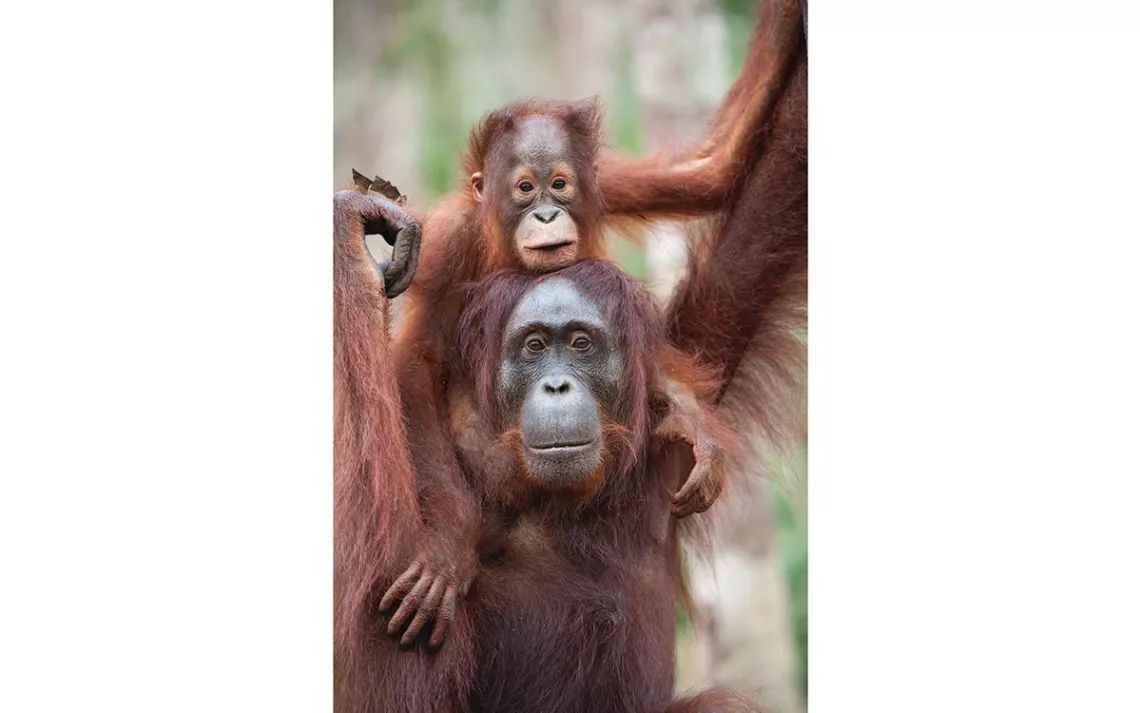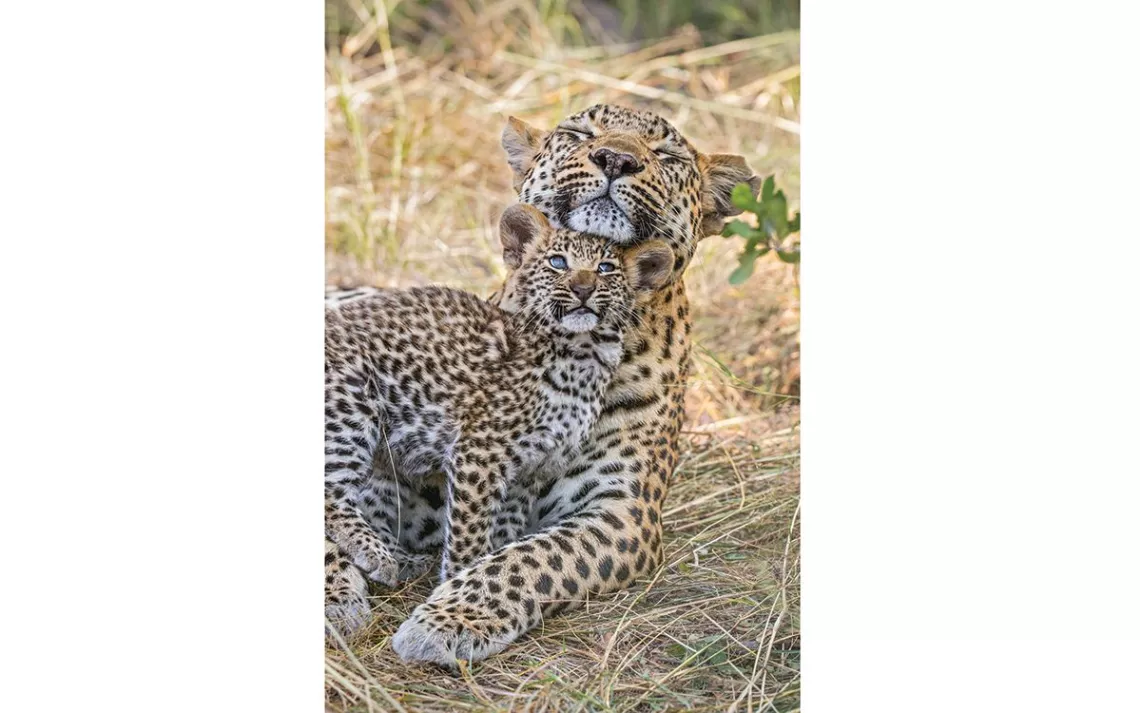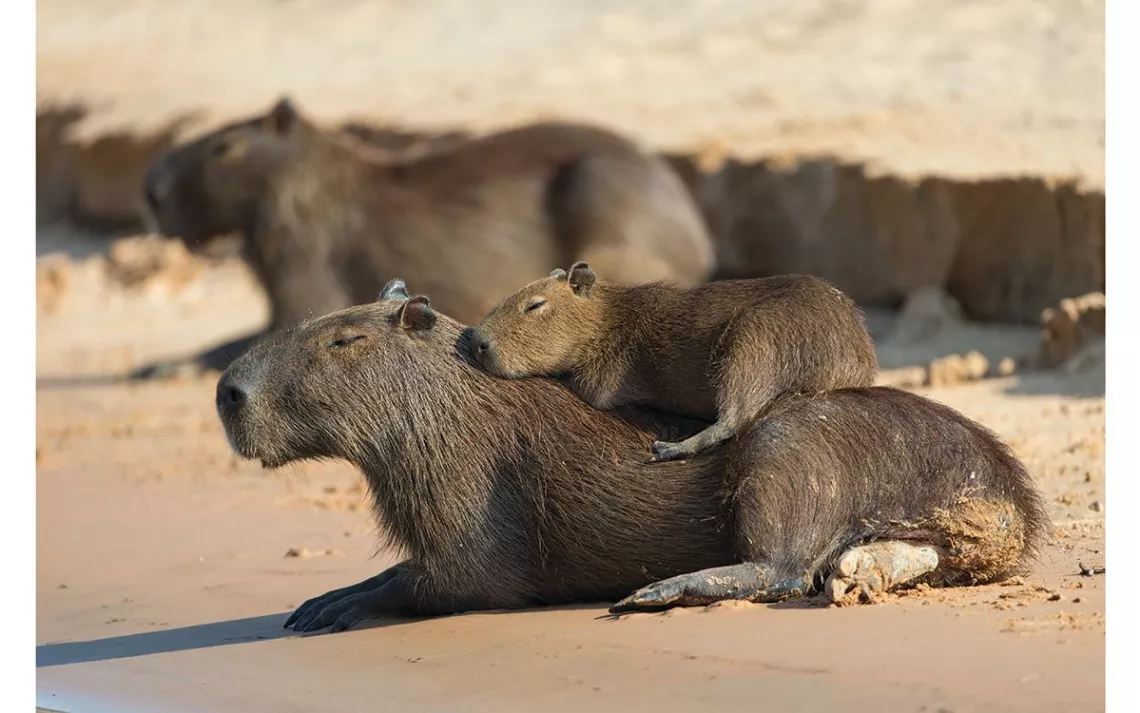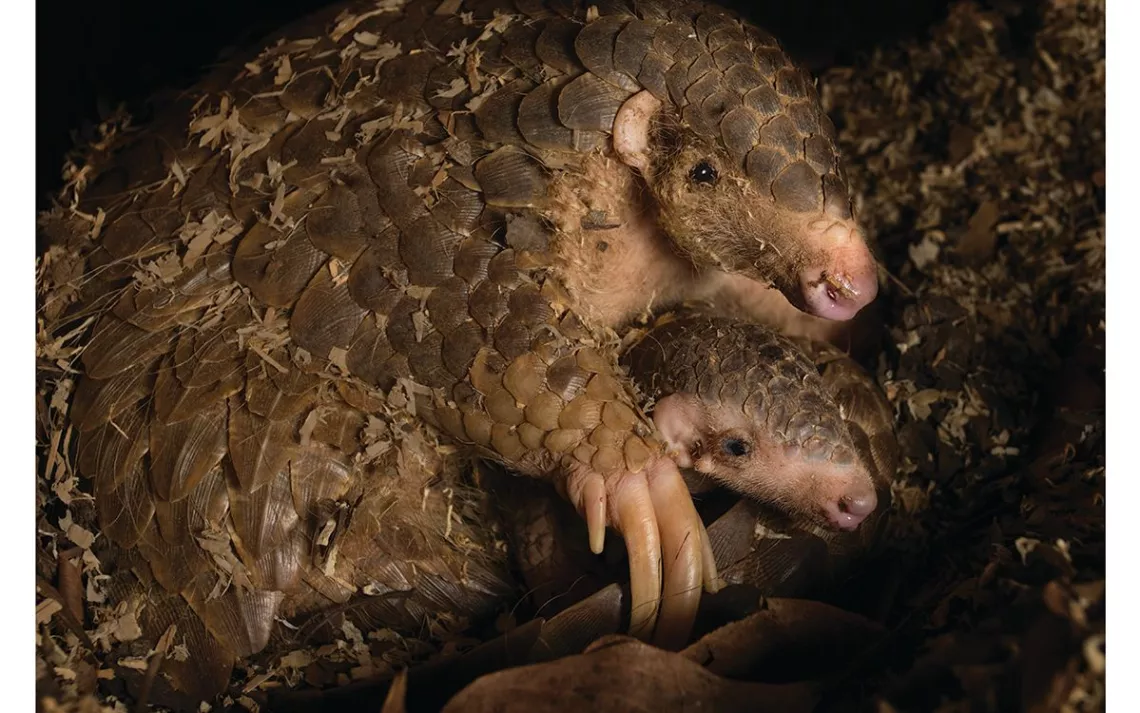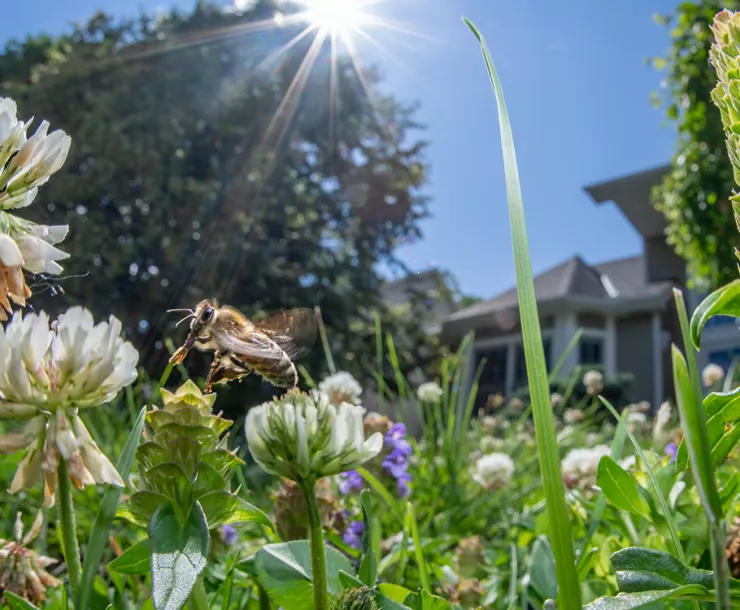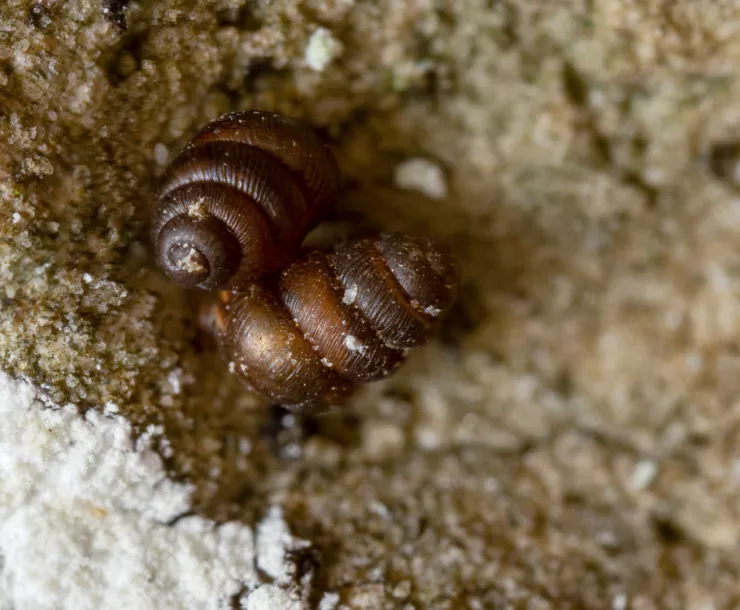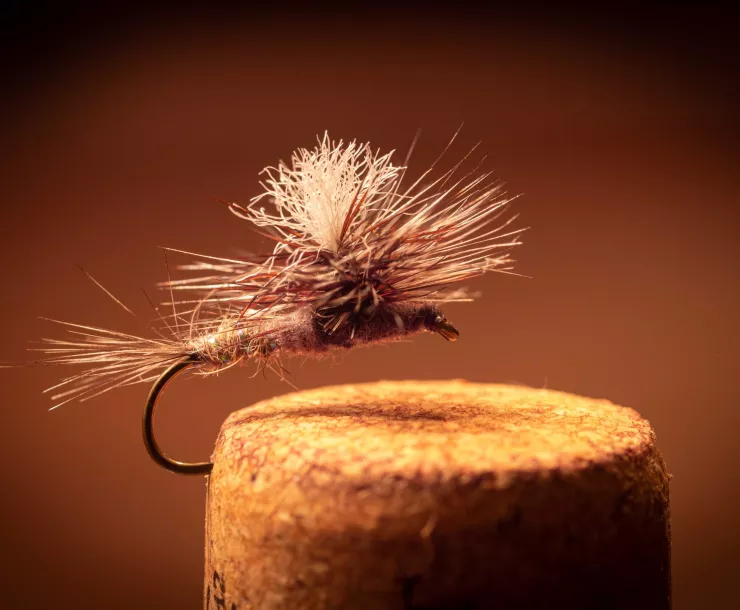These Baby Animal Photos Reveal a Lot About Motherhood
Suzi Eszterhas’s “New on Earth” celebrates moms and babies in the wild
Motherhood is a wild ride—especially when you live in the wild. Suzi Eszterhas knows this well. As a self-identified baby animal specialist, the wildlife photographer has made a close study of wee ones—and by extension, their mothers—on every continent, from pandas and cheetahs to kangaroos and pangolins. Her newly released book, New on Earth, is a compilation of her favorite photos over the course of a 15-year career (30 percent of the proceeds from the book go to wildlife conservation). In honor of Mother's Day, Eszterhas shared with Sierra in her own words what she’s learned from years spent observing animal moms in the wild.
Moms have their own unique personalities
“Animal moms are just like human moms in that they display a whole spectrum of behavior. Some moms are very attentive and playful. Truly, they find joy in playing with their babies. I was really struck by a leopard mom that I recently worked with because of how much she loved to play with her cubs. Sure, there were times when she was not in the mood and was just patiently dealing with the cubs, but more often than not, she was into it, even when the cubs were 16 months old. By then, they were more serious about life. They were doing less playing and trying to hunt, and mom was still engaging them in play constantly. I’d be watching a cub sit quietly in the grass, and mom would come around and pounce.
On the other hand, some moms are really grumpy and don't like to play with their babies. Some aren’t as attentive. It's not really a species-wide thing. It's more individual to individual. I think this is what people forget. They view these animals through the lens of an entire species. But they're all intrinsic beings that have unique personalities.”
Moms have good and bad days
“Animals have good and bad moods. The leopard mom I mentioned—I spent so much time with her: six different shoots over a period of two years. Some days, she would just be grumpy. One day, we came up on her, and she was really on edge. We figured out from looking at my tracker that she had had a conflict with one of the neighboring female leopards the night before. Basically, she had had a rough night, and she was not having it. She didn't want to play with her cubs. She was in a bad mood and probably freaked out. Animals have all these dramas just like humans do.”
Moms are fierce
“I always strive to capture images that show vulnerability and innocence. There really isn't a lot of room for vulnerability and innocence in our culture, and my hope is that images of baby animals will open people's hearts and make them care about these creatures and want to save them. But there’s a flip side to that vulnerability and innocence, and that’s the ferocity of the mothers. Moms have to be fierce to protect their babies. Some will even kill to defend them. Bears are the most notoriously protective. I've seen a grizzly bear mom face off against a male that was threatening her cubs, which is very brave. I've also seen a cheetah mom jump on the back of a hyena to protect her cubs—a very unusual behavior for cheetahs, whose defense mechanism is to run. The dedication and devotion are as intense in the animal kingdom as they are with humans.”
Moms are just trying to get by
“This is something I talk about a lot, especially in regards to backyard wildlife. We have so little tolerance for raccoons in our backyard that are having babies. It's like, ‘Oh, they're having babies; let's get a pest removal service and get rid of them.’ These animals are just trying to raise their young and make a living like the rest of us. Let's show a little tolerance and let them be. Maybe don't trim your trees when squirrels or birds are nesting. Wait until the fall for that. As much as we can, we should be making room for these wild animal babies to be able to grow up and survive in a human world.”
Love is universal
“My mom has been my biggest cheerleader throughout my career. She taught me the power of infinite love. One of the things that you can see in New on Earth is that this kind of love goes beyond humans, that these animals really do feel love. I think most scientists are starting to accept this idea. Moms are all in the same boat. It doesn't really matter what species they are; they all want their offspring to be healthy and thrive.”
This interview has been edited for length and clarity.
 The Magazine of The Sierra Club
The Magazine of The Sierra Club
